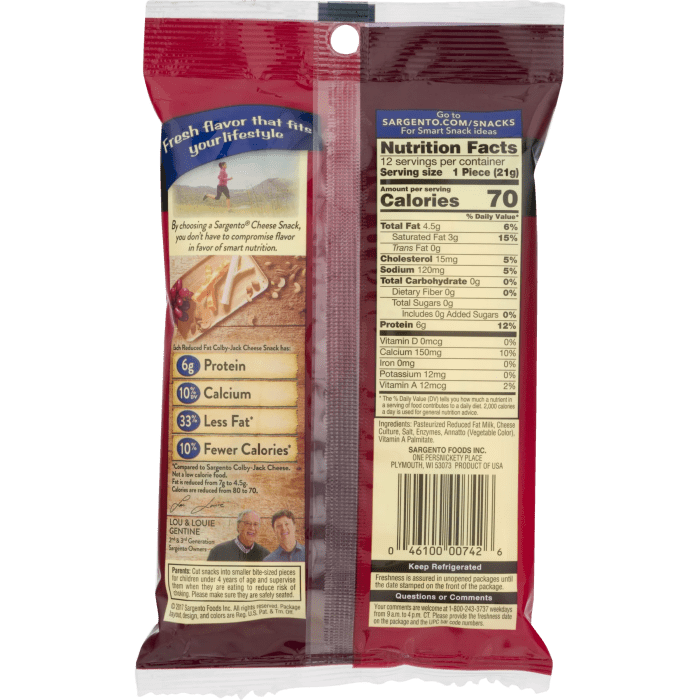Cottage Cheese in Different Diets
Nutrition facts for cottage cheese – Cottage cheese, a humble yet powerful food, offers a versatile canvas for diverse dietary needs. Its high protein content, coupled with its relatively low carbohydrate and fat profile (depending on the variety), makes it a cornerstone for many health-conscious individuals seeking spiritual nourishment through mindful eating. Let us explore how this simple food can serve as a building block for a balanced and fulfilling life.
Remember, food is not just fuel; it’s an act of self-care, a form of self-love, and a pathway to a deeper connection with your body and spirit. Choosing foods that nourish both your physical and spiritual well-being is a journey of self-discovery, a testament to your commitment to living a life aligned with your values.
Sample Meal Plans Incorporating Cottage Cheese
The following meal plans demonstrate the adaptability of cottage cheese across various dietary approaches. Each plan is designed to provide a balanced intake of macronutrients while respecting the specific limitations of each diet. These are examples; individual needs may vary, and consulting a nutritionist or healthcare professional is always recommended before making significant dietary changes.
- Ketogenic Diet:
- Breakfast: Cottage cheese with avocado and chia seeds.
- Lunch: Cottage cheese mixed with chopped cucumber, celery, and a drizzle of olive oil.
- Dinner: Cottage cheese stuffed bell peppers with ground beef and cheese.
- Low-Carb Diet:
- Breakfast: Cottage cheese with berries (in moderation) and a sprinkle of cinnamon.
- Lunch: Cottage cheese salad with spinach, hard-boiled eggs, and a light vinaigrette.
- Dinner: Cottage cheese and broccoli casserole with a small amount of grated cheese.
- High-Protein Diet:
- Breakfast: Cottage cheese with protein powder and nuts.
- Lunch: Cottage cheese and chicken salad sandwich on whole-wheat bread (portion controlled).
- Dinner: Cottage cheese omelet with vegetables.
Savory Cottage Cheese and Spinach Bake
This recipe offers a delicious and nutritious meal suitable for a balanced diet. It combines the protein richness of cottage cheese with the nutritional benefits of spinach, creating a dish that nourishes both body and soul. The preparation is simple, reflecting the ease with which we can integrate wholesome foods into our daily lives.
Ingredients: 2 cups low-fat cottage cheese, 10 oz fresh spinach (chopped), 1/2 cup chopped onion, 1/4 cup grated Parmesan cheese, 1 egg, 1/4 teaspoon garlic powder, salt and pepper to taste.
Instructions: Preheat oven to 350°F (175°C). Sauté onion in a pan until softened. Combine cottage cheese, spinach, onion, Parmesan cheese, egg, garlic powder, salt, and pepper in a bowl. Mix well. Pour mixture into a greased baking dish.
Bake for 20-25 minutes, or until golden brown and set.
Description: This dish is a delightful blend of creamy cottage cheese and earthy spinach, offering a savory and satisfying meal. The Parmesan cheese adds a touch of richness, while the garlic powder provides a subtle depth of flavor. The simplicity of the recipe reflects the ease with which we can nourish our bodies with wholesome ingredients.
Dietary Considerations and Limitations of Cottage Cheese, Nutrition facts for cottage cheese
While cottage cheese offers many nutritional benefits, it’s crucial to be mindful of potential dietary limitations. Understanding these aspects allows us to approach food with wisdom and respect for our individual needs, fostering a deeper connection with our bodies.
- Lactose Intolerance: Individuals with lactose intolerance may experience digestive discomfort after consuming cottage cheese. Choosing lactose-free varieties or consuming smaller portions can mitigate these effects.
- Sodium Content: Some cottage cheese varieties are high in sodium. Opting for low-sodium options or carefully monitoring overall sodium intake is advisable, especially for individuals with high blood pressure or other health concerns.
Key Questions Answered: Nutrition Facts For Cottage Cheese
Is cottage cheese good for weight loss?
Yes, its high protein content promotes satiety, helping you feel fuller for longer and potentially reducing overall calorie intake. However, portion control remains crucial for weight management.
Can people with lactose intolerance eat cottage cheese?
Some individuals with lactose intolerance can tolerate cottage cheese in moderation, as fermentation reduces lactose content. However, others may experience digestive discomfort. Lactose-free options are available.
How long can cottage cheese be stored?
Cottage cheese typically lasts for 7-10 days in the refrigerator after opening. Always check the “best by” date on the packaging and discard if it shows signs of spoilage.
Does cottage cheese contain cholesterol?
Yes, cottage cheese does contain cholesterol, although the amount varies depending on the fat content. Full-fat varieties will have higher cholesterol levels than low-fat options.
Yo, check the cottage cheese facts, right? Protein’s up, fat’s generally lower than other cheeses, innit? But if you’re after somethin’ a bit different, peep the velveeta cheese nutrition label for a total contrast – that’s a whole different ball game. Then get back to your cottage cheese game plan, fam. Know your numbers, bruv.



